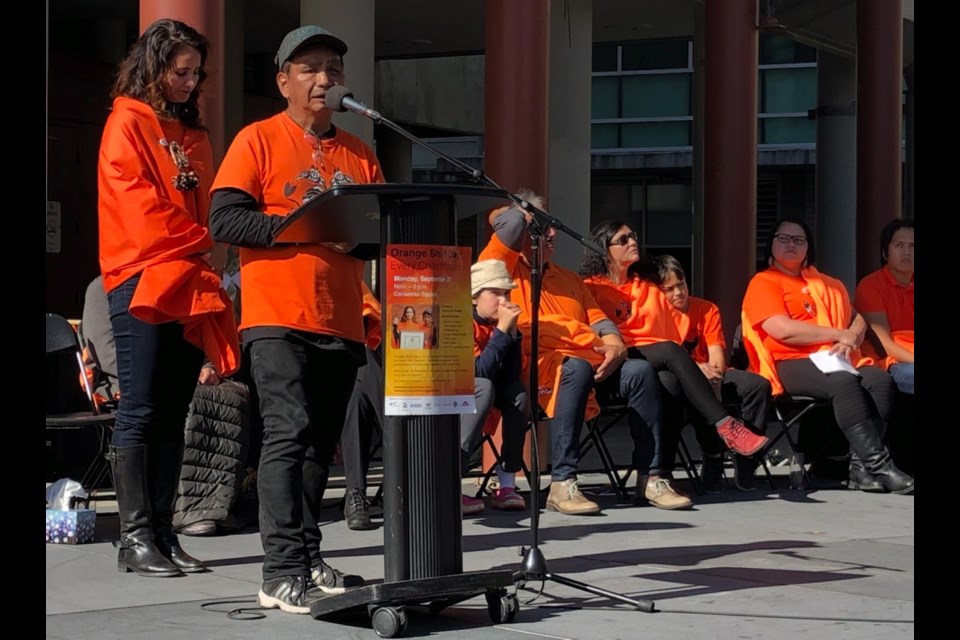Several hundred people clad in orange shirts gathered in Victoria’s Centennial Square Monday afternoon to mark a day of remembrance for residential school survivors.
Across Canada, Sept. 30 is recognized as Orange Shirt Day to recognize the harmful effects of residential schools on the 150,000 Indigenous children who attended them. The date was chosen because late September was the time when children were taken from their homes and sent to residential schools.
The survivors who addressed the crowd in Victoria introduced themselves in their own languages before switching to English. For some, speaking words in their language was a way to acknowledge what they had lost to the residential-school system.
“I can’t speak my language,” said Michele Mundy, whose grandparents attended residential schools, and whose mother went to a day school, where children went home in the evenings but suffered abuse at the hands of their teachers. “That’s one of the deep losses that I feel as a result of the residential school system and the fact that we weren’t allowed to speak our language.”
Some survivors remembered the abuse they endured and the harmful stereotypes that linger. “I was always called a dumb Indian, stupid, you’re no good,” said Mickey Cook, who attended a school in Alert Bay.
Of the 37 children in Cook’s class, he said, just two are still around — many were lost to alcohol and drugs.
Steve Sxwithul’txw brought a brick he retrieved from the ruins of the Kuper Island residential school he attended as a five-year-old. The school was taken apart by the community after it closed.
Sxwithul’txw said he wasn’t sure at first why he took the brick, but he now sees it as a tangible record of what happened to Indigenous children.
“It became a powerful symbol of resilience, of our honour, of our longevity and of our future. That there was no way a brick was going to keep us confined to what, back then, the government thought was best for us,” he said.
Victoria Pruden, who emceed the ceremony, began by asking the crowd to practise pronouncing the name of the event, Xe xe Smun eem (shat shat smun am), which means “sacred children” in the Cowichan or Quw’utsun language.
The dozen people on stage wore orange blankets for the ceremony.
“It is our traditional way to blanket those in our longhouse. The meaning of being blanketed is to wrap you and cover you,” said elder May Sam, who performed a blessing for the crowd.
Mayor Lisa Helps acknowledged that the city of Victoria has been built “in someone else’s living room.”
She offered homework to the non-Indigenous people in attendance, urging people to read Paulette Regan’s book Unsettling the Settler Within: Indian Residential Schools, Truth Telling and Reconciliation in Canada.
Survivor Eddy Charlie and Kristin Spray, along with city staff, organized the event, which they developed in 2015 while students in Camosun College’s Indigenous studies program.
Phyllis Jack Webstad’s experience at a residential school is behind the naming of Orange Shirt Day. Her grandmother bought her a shiny orange shirt for the first day of school. School officials took away her clothing when she arrived.
regan[email protected]
> Residential school victims named, A8



